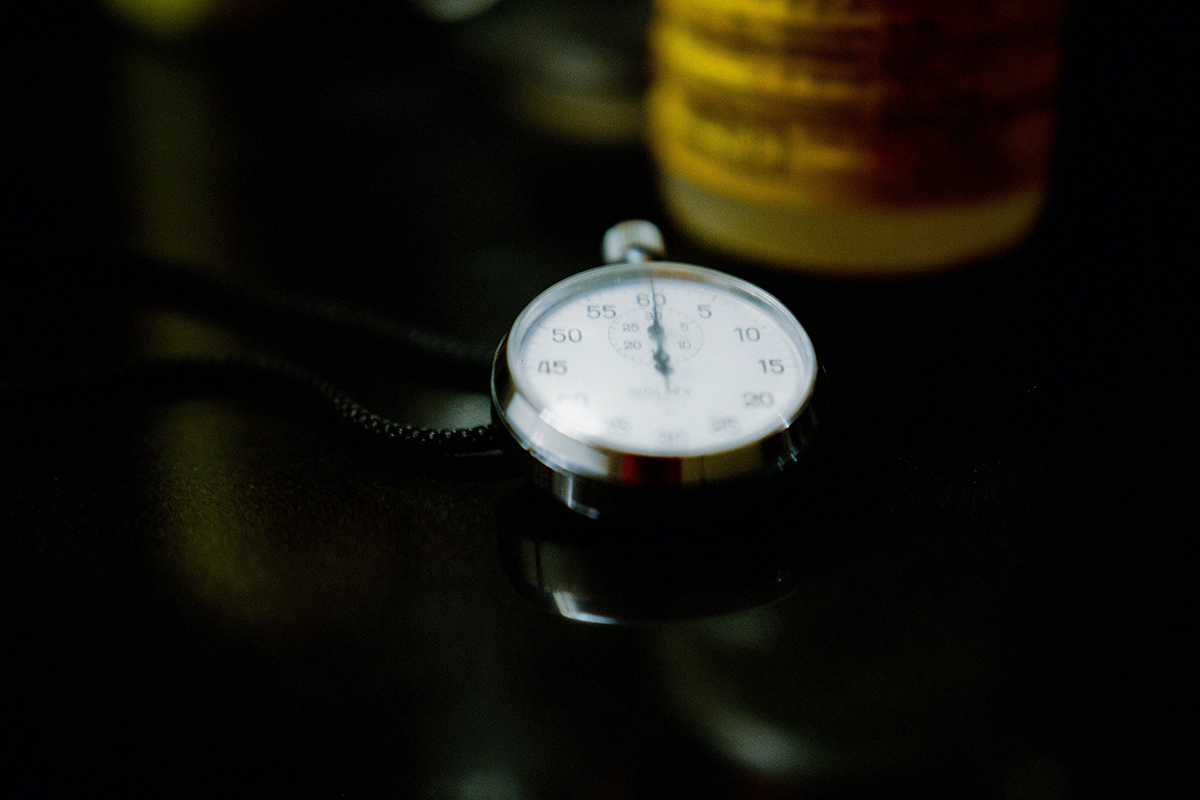Why Dating Is So Hard - And How This Method Makes It Easier
It’s no secret. Dating is hard. Sometimes, dating can be so exhausting and complicated that the idea of getting back out there is a turn off altogether - but how do you accomplish your goals of getting into that happy relationship if you don’t date?

So, you put yourself out there, and embrace the messiness of dating, and almost instantly remind yourself of why you perhaps stopped in the first place. It feels like a catch 22 right? Can’t win for losing…. Or can you?
Getting Hurt While Dating
I’m a firm believer that the first step at approaching any problem is to invest time into figuring out what the problem actually is, and why it is. This gives you an opportunity to approach your goal from a different angle, and this angle may lend itself to more productive results.
The answer to why dating is hard is actually pretty simple. I think Usher explained it best - you’re “Caught Up”, which is me oversimplifying the reality that you’ve allowed something you want and/or like cause you to dismiss non-negotiable standards in dating.
Women and men typically get caught up in different things, but both things center on whatever you’re attracted to and/or value. It’s common for men to get caught up in their physical attraction towards their partners, while although this is important for women as well, women more so end up getting caught up in their emotional attraction towards their partners, or how someone ends up making them feel. Whatever sparks you, the point is, usually when that match is lit? The dancing flame becomes the distraction that causes you to dismiss a lot of the signs that could have saved you from being disappointed at the end.
Men usually end up getting hurt after investing more time then what they should have and use that pain to justify shutting down because they think everyone’s the same. Women usually end up getting hurt after feeling played or betrayed when they’re ghosted, and use that pain to justify becoming cold and distant.
We like to think that we have more control over our emotions than what we actually do. Respecting the lack of control we have in this department will actually afford you more control to execute your goals more efficiently and below I detail a method on how to do that exactly.
The 3+1 Dating Method
This method is designed to make sure you're not investing earlier/more than you should. It can be divided into two parts:
Part 1: 3 dates, executed within 30 days, each focusing on establishing different standards.
Part 2: 1 "trial period" executed within the next 60 days, focusing on establishing a sense of consistency.
Date 1
On your first date, which ideally is a bit casual (drinks or coffee, lunch, etc.) you’re focusing on assessing whether or not the person in front of you has the same values and relationship goals you do. If you do not have similar values (which is different from beliefs) then chemistry will not be enough to outweigh how problematic that will be later. If you do not have similar relationship goals? (i.e. you’re looking for a long term relationship or marriage and they’re just “casually dating” or looking for friends with benefits) then, there is no later. You want to have clarity on why they’re dating, and a rough sense of their values by the time that date concludes. If your values conflict or they don’t share the same goals you do? Then there’s no point in moving forward.
People who choose to keep entertaining a dynamic after establishing this reality set themselves up for disappointment by choosing to hope that the “chemistry” will make up for what’s lacking, or that “people will change their minds” -- you should value your time and energy more than this.
Date 2
#

On your second date, which is ideally a bit more intimate (dinner, walks/hikes, etc.) you’re focusing on assessing relationship compatibility. Now, this isn’t the same as personal compatibility when you’re trying to establish whether or not you and this person click - this is about trying to figure out whether or not who you’re dating is compatible with what it means to be in a relationship.
It’s not always necessarily a deal-breaker, but still important to know. We figure this out by having conversations that focus on getting some understanding or clarity on their past relationship or dating experiences. You’re trying to rule out signs you could be a rebound, or dating someone with commitment issues. (i.e. if someone just got out of a multi-year relationship 2 months ago? There’s a high likelihood that they’re not ready for another serious commitment immediately. If someone’s last relationship was months or years ago, and the longest dynamic they’ve ever been in was only a few months? Then this person has very little experience in what it means to be in a long term relationship to genuinely promise that they could be.)
It’s up to you to decide whether or not your takeaway is a deal-breaker. If you know you want something serious, and your date just got out of something serious? Then I don’t suggest you place yourself in a position to be a rebound or to have your time wasted. If you don’t feel like you have the time to teach someone what it means to be in a long-term relationship? Then I don’t suggest investing time with someone who doesn’t have that experience yet.
Date 3
Dates 1 & 2 ideally are about a week apart, this third date can be spaced out more towards the end of the 30-day allotted time. This date should be both casual and intimate (i.e. movies at your place or their place, dinner at home, etc.) and establishes a bit of comfort and ease that should have been earned by now. Ironically, it’s this date you’re wanting to establish personal compatibility and attraction. Chemistry isn’t something to be measured; you generally either have it or you don’t, but there are 2 reasons we wait until the third date to establish this:
Establishing it on the first date is the leading reason why we tend to dismiss the standards we assess in the first two dates of this process, and
Sometimes there isn’t such a thing as “instant chemistry” and by waiting until the third date, you’re basically allowing a person (who meets your standards and checks most boxes) to build chemistry with you, or to check if how you see them changes.
If by the third date the chemistry still isn’t there? You can let it go as chemistry is an essential part of the process.
The 60 Day Trial Period
#

Ideally, those 3 dates were accomplished within about 30 days, and hopefully, in that time, you have assessed whether or not you think someone is worth your time and energy. If they are? Then you want to allow both of you to test-run what it may be like to be together. The next 60 days is a time of managing expectations. We suggest trying to create a sense of consistency in communication with your partner. We’re holding space for the reality that when we’re dating, we rarely bring our authentic selves forward, and more so the version of ourselves we think other people want, but keeping up that facade is not sustainable over a long period of time, and it’s in this time frame our true colors tend to show. (i.e. you’re holding space for things to get messy, and for you two to argue, and disagree, and see the more unattractive side of each other). You’re not expecting a commitment or relationship benefits in this space. You’re also still pretty emotionally guarded as enough time has not passed for someone to effectively earn your deep sense of vulnerability.
By the end of the 60 days, you’re going to reassess whether or not you want to entertain a relationship with the person you’ve gotten to know more of in the past two months. If so, we suggest having a conversation that proposes this. Mind you, if you had common goals, both parties should have been toying with this idea for the past two months, which is more than enough time to come to a conclusion about what you want. Either your partner commits to a more sustainable commitment, with a clear definition of what you two are, or they don’t. If they don’t, you do not hold space for them to make up or change their mind - you establish a sense of conclusion or closure. Take some brief time for yourself to refresh, and start the process over again if you’d like with someone new.
Conclusion
#

In my professional experience, 90 days is generally the max amount of time to assess whether or not something is or isn’t going to work. Anything less and people feel as if they didn’t give it their all, and anything more people tend to feel used and burnt out. 90 days or less is the general amount of time it takes to roughly establish who a person is, whether or not you like them, and whether or not you want to commit. Keeping this in mind from the beginning, helps you better manage your expectations, since, to quote Shakespeare, “Expectation is the root of all heartache…”
You do not need dating to not be hard. You need it to be more effective than how you’ve been approaching it.
--
The Best Relationship Advice For You:
Want guaranteed results?
Click here to chat with a relationship coach. We have a team of highly trained relationship coaches who get you, get your situation, and help you accomplish what you want. They help you through complicated and difficult love situations like deciphering mixed signals, getting over a breakup, or anything else you're worried about. You immediately connect with a coach on text or over the phone in minutes. Just click here to start.
--